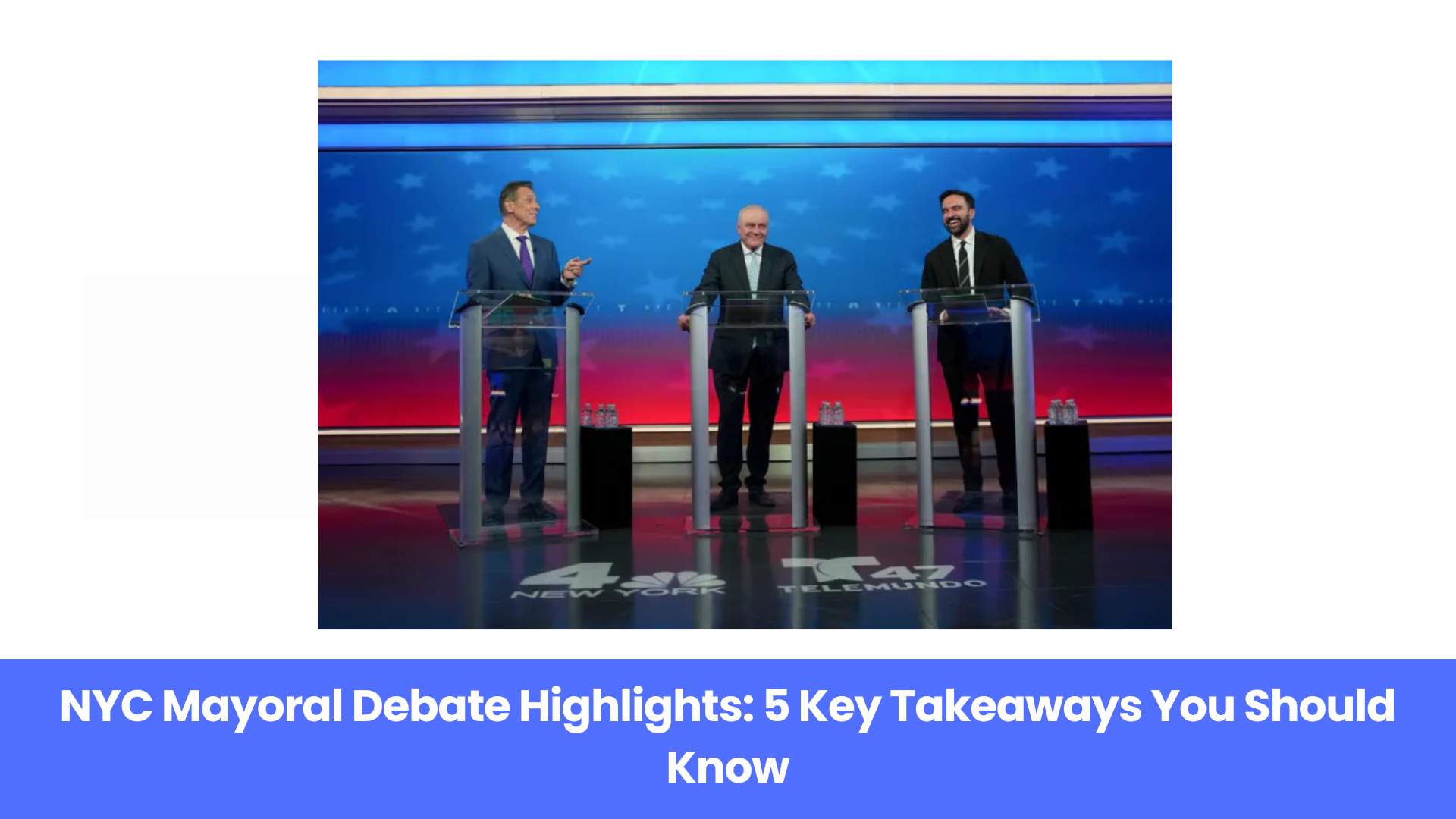The first televised debate for the New York City mayoral election offered voters a clear view of the three main candidates’ positions. With just under three weeks left before the November 4 election, the debate highlighted key differences in vision and political approach.
Democratic socialist Zohran Mamdani continues to lead in the polls, but his rivals, former Governor Andrew Cuomo and Republican Curtis Sliwa, tried to challenge him on several issues including Gaza, policing, and his experience.
1. Israel-Palestine Conflict Became a Central Topic
Although the war in Gaza is far from New York City, it became a major point in the debate. Mamdani emphasized his support for a ceasefire and called for addressing the root causes, including occupation and humanitarian issues.
Cuomo criticized Mamdani for his comments on Hamas and accused him of not fully supporting Israel’s right to exist. Mamdani defended his stance by referencing international law and the importance of peace for all parties.
The discussion highlighted how local elections can intersect with global politics, especially when candidates have strong views on international human rights issues.
2. Mamdani’s Strong Poll Lead Remains Intact
Despite Cuomo and Sliwa’s attempts to challenge him, Mamdani maintained confidence throughout the two-hour debate. Polls show him with a significant lead, suggesting voters are resonating with his progressive policies and approach to city governance.
Mamdani’s youth and fresh perspective appeal to voters seeking change from traditional political figures, giving him a clear advantage over his older competitors.
3. Policing and Public Safety Were Major Discussion Points
The debate included heated discussions on policing, crime rates, and public safety in New York City. Mamdani emphasized community-based solutions and reforms, while Cuomo and Sliwa focused on stronger law enforcement measures.
These differences underline the contrasting approaches between progressive and more traditional candidates in addressing city safety concerns.
4. Experience and Political Background Under Scrutiny
Cuomo tried to question Mamdani’s experience and readiness for the mayoral role. Mamdani, a 34-year-old assemblyman, defended his record and highlighted his legislative achievements.
Sliwa struggled to make a strong impression during the debate, with much of the discussion dominated by the Mamdani-Cuomo rivalry. Voters got a clearer understanding of each candidate’s background and capability to handle city issues.
5. Debate Showed Clear Divides Among Candidates
The debate emphasized the ideological differences among the three candidates. Mamdani’s progressive stance contrasted sharply with Cuomo’s centrist approach and Sliwa’s conservative viewpoints.
The discussion of global politics, policing, and local governance demonstrated how national and international issues can influence local elections. Voters were able to see not just policy differences but also the personalities and communication styles of each candidate.
Conclusion
The New York City mayoral debate provided voters with important insights into the candidates’ policies, priorities, and leadership styles. Zohran Mamdani’s lead in the polls remains strong, but Cuomo and Sliwa used the debate to challenge him on key issues such as Gaza, policing, and experience.
With less than three weeks until the election, the debate could influence undecided voters, highlighting the importance of televised debates in shaping public opinion.
FAQs
Who are the main candidates in the New York City mayoral race?
The leading candidates are Zohran Mamdani (Democratic Socialist), Andrew Cuomo (former Governor, running as independent), and Curtis Sliwa (Republican).
What were the main topics discussed in the debate?
Key topics included the Israel-Palestine conflict, policing, public safety, candidate experience, and overall vision for the city.
How did Mamdani respond to criticism on Gaza?
Mamdani supported a ceasefire and emphasized the importance of addressing the root causes, including occupation and human rights violations, while calling for peace for all parties.
Did the debate affect the polls?
While the debate clarified each candidate’s position, current polls still show Mamdani with a strong lead. It may influence undecided voters closer to the election.
When will the New York City mayoral election take place?
The election is scheduled for November 4, 2025.

